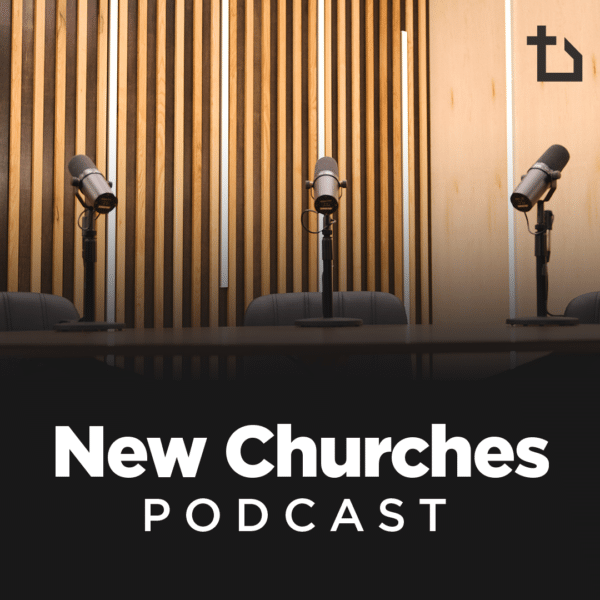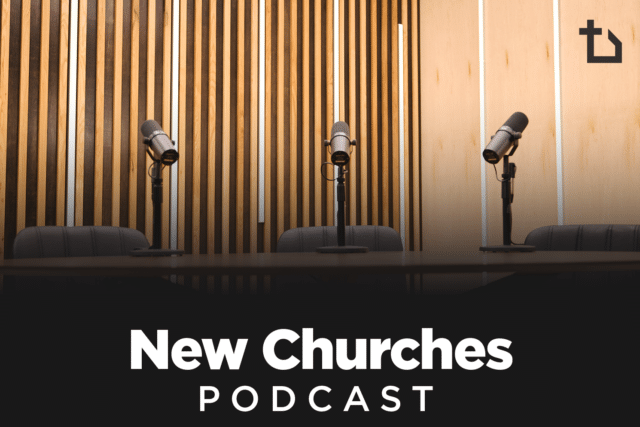New Churches Podcast | Season 1 | Episode 629
Why is Church Planting So Hard?

Episode 629: What two things can we do to encourage more bivo/covo church planting – and what are the relational, financial and missiological benefits? Host Ed Stetzer and Brad Brisco, NAMB’s director of bivocational church planting, discuss bivo/covo church planting and how, depending on cultural context, it might be easier – or more difficult – than traditional church planting.
In This Episode, You’ll Discover:
- The difference between “bivocational” and “covocational”
- The importance of developing a core team, regardless of how a church is being planted
- How bivo/covo church planting, depending on cultural context, might be easier or more difficult
- When church planting shifted from being a discipling experience to a “launch” experience
- What two things we can do to encourage more bivo/covo church planting
- The relational, financial and missiological benefits of covo church planting
- How traditional church planters and pastors can encourage bivo/covo planting
Sharable Quotes (#NewChurches):
Sometimes we bifurcate our thinking about ministry. I think I think that, unfortunately, we have too many bivocational planters or pastors who compartmentalize their work in the marketplace and their mission or ministry. I don’t think that’s helpful. @BradleyBrisco
A bivocational church planter is someone who has a part-time job in the marketplace that they see as temporary. A covocational church planter, on the other hand, would be someone with a primary calling in the marketplace that they never intend to leave. @BradleyBrisco
How can you do what God’s called and wired you to do for the glory of God, but at the same time have a different imagination for church planting where you can start something while you’re in the marketplace? @BradleyBrisco
The most difficult time of church planting is when you’ve got nobody and you’re trying to start off from there. @EdStetzer
Sometimes I wonder if we have some foundational assumptions about church and mission and even leadership that actually make church planting more difficult. @BradleyBrisco
An understanding of the church as a vendor of religious goods and services can create a consumeristic monster. I wonder if there’s benefit in seeing the church as a more simple, more nimble, more missionary entity – which doesn’t make it easy by any means. @BradleyBrisco
More simple, organic church planting may actually be harder in some ways with the majority of people in our culture. I think it’s hard to say, “Listen, we’ve got a church. There’s no pastor in the sense you understand a pastor, and we meet in a home and it’s not a cult.” @EdStetzer
In an increasingly missionary context, in places where we’re really reaching into lostness, we have to have a “longer runway” perspective and we have to measure and count different things. We need to focus on more organic, relational discipling. @BradleyBrisco
Often our very first step of evangelism is we have to deconstruct the caricatures lost people have about christians and the church. The only way we’re going to do that is by doing life with them and actually building relationships. @BradleyBrisco
In bivo/covo church planting, when you don’t have this immediate need to get to financial self-sufficiency, there’s less pressure toward that Sunday morning gathering and you can evangelize and disciple a church into existence. @EdStetzer
If your goal was discipling people, rather than launching a public worship service, there’d be a lot fewer church planting failures because we had a different target and it made a difference. @EdStetzer
Sometimes we make church planting harder than it needs to be because we don’t do it with a team. If you’re bivo/covo, there’s just no other option. You have to do this with a team. @BradleyBrisco
My perfect scenario would be two or three covocational couples and two or three covocational singles planting a church together. Can you imagine the relational capital? And if each one gave six or more hours a week toward a church plant, think about the financial sustainability. @BradleyBrisco
We need to tell the beautiful stories of the bivo/covo planter who’s driving the school bus, the school teacher, the mechanic who’s planting a church. We have to do a better job of tapping into the power of the narrative. @BradleyBrisco
Start a bivo/covo pilot project on the side, and when that goes well, capture those stories and tell them to the rest of the congregation. That’s going to open up the eyes of other people to say, “Hey, I love what they’re doing. I think I could do that!” @BradleyBrisco
Helpful Resources:
- Free on NewChurches.com:
– Course: Developing a Core Team
– Book: Covocational Church Planting - Ed Stetzer’s book, Viral Churches, on amazon.com
- Interested in learning more? Check out our Church Planting Primer”
- Are you ready to enroll in our Church Planting Masterclass?
- Please subscribe to the podcast
- Leave a rating and review on iTunes
Published on January 05, 2022



